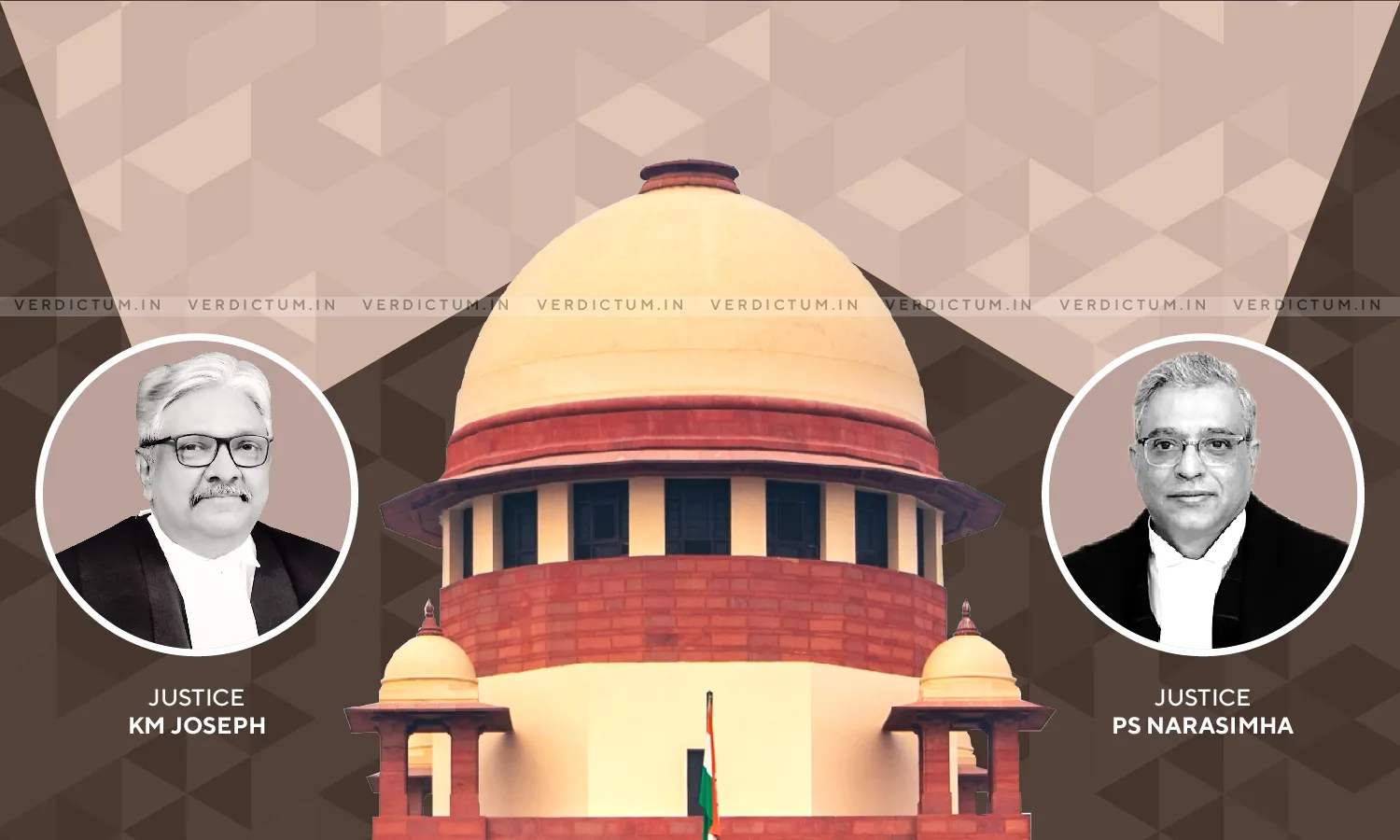No Proper Pleadings, A Fit Case To Apply Doctrine Of Lifting The Corporate Veil – Supreme Court Holds In A Consumer Dispute Case
A two-judge Bench of Justice KM Joseph and Justice PS Narasimha has held that the case it was considering was a fit case where the NCDRC should be asked to look into the complaint that both parties are a single entity and a case for lifting the corporate veil is made out since there were no proper pleadings.
An appeal was preferred before the Supreme Court assailing the impugned order of the National Consumer Disputes Redressal Commission (NCDRC) which had allowed the complaint of the Complainant and directed the Appellant and the developer to refund the amount of the Complainant-Home Buyer with interest.
In the case, a tripartite agreement was entered into between the Appellant, buyer, and developer. After the agreement was signed, the project commenced but it could not be completed as contemplated. This led to a complaint being filed before the NCDRC.
The Appellant contended before the Supreme Court that NCDRC erred in making the former liable under the Consumer Protection Act. Further, it was argued that under the collaboration and tripartite agreement, the Appellant has not undertaken any liability qua the consumers i.e., the flat buyers.
While, the complainants-flat buyers argued that being a confirming party and having regards to the terms of the agreement, the Appellant was rightly made liable by the NCDRC.
The Apex Court after referring to the collaboration agreement noted that in the tripartite agreement the Appellant was described as the confirming party or owner.
In the context of the complaint being filed under the Consumer Protection Act, the Court observed –
"The Act contemplates the consumer as defined being enabled to move a complaint as defined, setting the ball rolling for the Body under the Act to consider the complaint on its merits and to decide to grant appropriate relief or refuse relief."
"A crucial provision in the context of this case would appear to us to be the word 'deficiency'. The word 'deficiency' has been widely worded to capture any fault, imperfection, shortcoming or inadequacy in the quality, nature and manner of performance," further the Bench opined.
The Court held that a claim can succeed in a case of this nature if the consumer establishes a deficiency of service.
Additionally, the Bench added, "A statute of this nature must, indeed, if possible, be construed in favour of the consumer. However, that is a far cry from holding that if deficiency is not established, yet the opposite party must bear the liability which cannot be thrust on its shoulders."
The Court noted that where there is no privity between the complainant and the opposite party, the opposite party cannot become liable under the Act.
The Bench further refused to comment upon the contention of the complainant that in the power of attorney it is established that the Appellant was the principal and the developer was a mere agent since this was not the case which was set up before the NCDRC as there were no pleadings in this regard.
The Court also held, "The fact that developer has agreed to reimburse the land owner would not detract from any liability which the land owner may incur under the law and under the contract."
The Court noted that NCDRC did not correctly appreciate the nature of the obligations and requirements of the Act to make the party liable.
"As fairly stated by the learned counsel for the complainants there is a complete lack of pleadings to support the case of the nature which is sought to be set up, viz., that this is a fit case for employing the doctrine of lifting of the corporate veil or that the appellant would be liable being the principal of the the developer," the Court held.
The Court held that it cannot uphold the order of the NCDRC in the manner in which it was being done. The Court further gave an opportunity to the Respondents to seek amendment of pleadings and establish a case.
Accordingly, the Court allowed the appeals and remanded the matter back to NCDRC and set aside the impugned order of NCDRC. The Court left it open to the Respondents to seek amendment of pleadings and adduce material in support of their contentions.
Click here to read/download the Judgment




